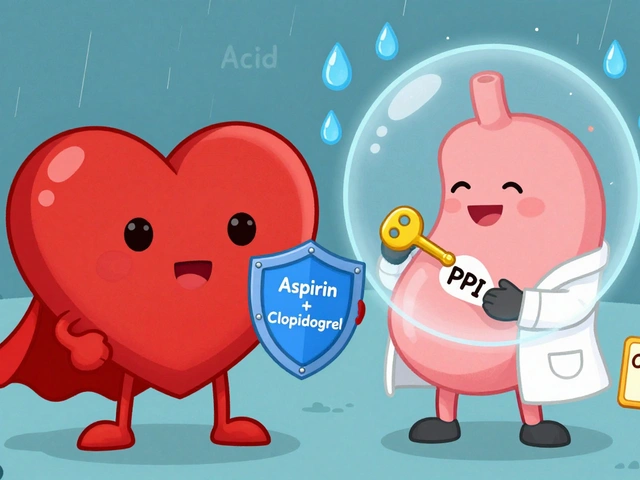When it comes to managing herpes, Valtrex often stands out as a go-to option. But not everyone finds it to be the best fit, and sometimes exploring alternatives is necessary. Luckily, there's a plethora of options available that cater to different needs and preferences. This article dives into the realm of antiviral medications beyond Valtrex, providing insights into their unique features.
Whether you're searching for an over-the-counter solution or you've got specific medical considerations, these alternatives might just be what you're looking for. Let's unravel the choices and see how they stack up against each other in the quest for effective herpes management.
Acyclovir
Acyclovir, one of the most renowned antiviral medications, is often hailed for its impressive effects on herpes virus-related conditions. Being a precursor to Valtrex, it shares a lot of similarities but takes a unique path in treating the symptoms. Developed initially to enhance the fight against herpes, Acyclovir works by interrupting the viral DNA replication process, a crucial method to halt the spread of the virus throughout the body. It's a fascinating compound that heavily relies on its ability to sneak into the viral DNA chain, effectively causing a chain reaction that prevents further replication. Those suffering from genital herpes, cold sores, and shingles have turned to Acyclovir as a vital remedy in their medical arsenal.
Patients who start on Acyclovir often appreciate its wide availability. It's a medication known around the globe, making it an accessible choice for many people looking for Valtrex alternatives. Interestingly, one notable study highlighted in the Journal of Antimicrobial Chemotherapy found that regular use of Acyclovir could significantly reduce the frequency and severity of outbreaks. The catch, however, lies in the need for frequent dosing due to its lower bioavailability compared to Valtrex. This necessity can sometimes impact patient compliance, as the routine of taking multiple doses a day might become cumbersome for some. Bioavailability refers to the extent a drug becomes active in the body post-consumption, and in this regard, Acyclovir requires the patient's dedication and adherence to the regimen.
Pros
- Widely available and often more affordable than Valtrex
- Strong efficacy against various herpes viruses
Cons
- Requires frequent dosing due to lower bioavailability
- Compliance is critical for treatment success
Though dosing might be frequent, it's crucial to highlight the cost aspect, which generally leans in favor of Acyclovir. Many patients appreciate the financial relief while still being able to achieve the desired therapeutic outcomes. This balance of cost-effectiveness and accessibility often plays a paramount role in medication choice. As we delve deeper into the alternatives to Valtrex, Acyclovir stands not just as a simple substitution but a potent option with a storied history and compelling evidence of efficacy.
"Acyclovir is a mainstay in antiviral therapy, demonstrating noteworthy effectiveness in managing herpes virus infections for individuals across the world." — Dr. Ann Patel, Infectious Disease Specialist.For those interested in exploring various options, understanding the full landscape of Acyclovir's characteristics is a stepping stone to making informed decisions. This medication continues to be widely studied and recommended for its ability to manage symptoms effectively and improve quality of life for herpes sufferers. As with any medication, consultation with a healthcare provider ensures that Acyclovir fits seamlessly into one's personal health plan, making it a promising competitor to other alternatives on the market.
Famciclovir
Famciclovir is a notable member of the antiviral class, often mentioned when discussing alternatives to Valtrex. This medication is used primarily for treating herpes-related infections, including genital herpes, cold sores, and even shingles. What sets it apart is its capability to transform into penciclovir once ingested. This transformation is vital because penciclovir alone isn’t efficiently absorbed when taken orally; however, its bioavailability is significantly improved when administered as famciclovir.
When compared to its peers, famciclovir provides a decent balance of efficacy and convenience. Famciclovir has shown to be particularly effective in helping individuals with compromised immune systems manage their herpes outbreaks more effectively. For instance, it works by inhibiting the replication of the virus, helping to control symptoms and minimize transmission risks. Clinical studies have consistently supported its use among patients who require a potent yet tolerable antiviral treatment.
"Famciclovir offers a unique approach to antiviral therapy, as mentioned in several studies, due to its enhanced oral absorption and longer duration of action," states a well-regarded virology expert.For those considering Valtrex alternatives, famciclovir merits a close look, particularly for people who might struggle with frequent dosing regimens common with other medications like acyclovir. Its less frequent dosing schedule not only improves patient compliance but also helps in rapidly easing symptomatic burdens, which can be a significant relief for those dealing with the physical and emotional stress of herpes outbreaks.
However, it's crucial to acknowledge some drawbacks associated with famciclovir. While it provides an edge in terms of bioavailability and dosing convenience, its use is sometimes overshadowed by more commonly prescribed antivirals such as valacyclovir and acyclovir. The variable effectiveness of famciclovir against different herpes strains can also pose a concern for certain patients, emphasizing the importance of a tailored healthcare approach. Doctors may not always lean towards famciclovir as the first-line treatment simply due to its availability or the familiarity and historical preference for other antivirals.
For those suffering from shingles, famciclovir's role becomes even more pronounced. As per the reported statistics, patients have experienced significant reduction in the duration of pain associated with shingles outbreaks when treated with famciclovir. This reinforces its position not just as a second-tier option, but as a primary choice in specific scenarios.
Balancing the professional guidance with personal health circumstances presents the real challenge when choosing among Valtrex alternatives. Engaging in a thorough discussion with healthcare providers and weighing the pros against potential cons can lead to a successful management strategy with famciclovir or another appropriate option.

Penciclovir
For those grappling with the pesky annoyance of cold sores, Penciclovir emerges as a formidable ally. Widely recognized in the pharmaceutical world for its role in battling herpes labialis, it stands apart with its targeted topical application. This medication entered the spotlight back in 1996 when it was approved by the FDA, further solidifying its place in the routine remedy toolkit. Unlike some of its oral counterparts, Penciclovir is strictly for topical use due to its poor oral bioavailability. This characteristic, though limiting its systemic application, underscores its precision against cold sores erupting on the lips and face.
One might wonder why Penciclovir continues to be the topical treatment of choice? The secret lies in its ability to directly interrupt the replication cycle of the herpes virus right where it strikes. Apply medications like Denavir right at the onset of that telltale tingle, and you've got a solid strategy for reducing both the duration and severity of outbreaks. A tiny tube can thus act as a potent shield, offering relief within days. Compared to systemic medications, it doesn't circulate throughout your system, which can be quite a welcome feature for those looking to minimize medication intake. Research often shows that patients applying Penciclovir notice a significant reduction in healing time, a promise that is both practical and reassuring.
Famciclovir, Penciclovir's big brother, often accompanies treatments, working behind the scenes to give Penciclovir that extra kick. The topical nature of Penciclovir means it's less likely to cause side effects associated with oral medications such as nausea or headaches, making it a favorable option for individuals sensitive to such issues. Users of Penciclovir-inspired solutions like Vectavir and Fenivir report a notable decrease in lesion formation, which ultimately reduces the stigma associated with these visible outbreaks.
Now, here's another interesting angle: some studies emphasize the act of application itself. The physical act of applying Penciclovir upon the first sign of a cold sore may contribute to quicker recovery times. It’s a ritual of sorts; a proactive step that not only aids in physical healing but also empowers patients with a sense of control over their condition. Though it doesn’t flaunt the wide-spanning abilities of oral antivirals, the precise action of Penciclovir on targeted areas makes it an indispensable player in the war against cold sores.
"The impact of topical treatments on patient confidence cannot be overstated. Quick application can narrow the window of discomfort and distress considerably." - Dr. Jane Waldron, Dermatological Expert
With so many positives, it might be tempting to overlook certain caveats. Penciclovir doesn't disguise its limitations: it doesn't promise miracle cures for shingles or genital herpes, or even prevention of future outbreaks, which might be expected from oral Valtrex alternatives. Still, Penciclovir fulfills a critical niche, delivering a focused punch to cold sores, without the unnecessary regimen of systemic treatments. It's a matter of choosing the right tool for the right job, an approach Penciclovir knows well, and one that continues to make it irreplaceable to many.
Docosanol
Docosanol, often recognized by its brand name Abreva, has carved out a niche for itself as a topical remedy for cold sores, also known as herpes labialis. This non-prescription medication stands out due to its unique mechanism of action that does not rely on affecting viral DNA synthesis like traditional antivirals. Instead, Docosanol works by modifying the host cell membrane, blocking the herpes simplex virus from attaching to and entering the cells. This mechanism offers a distinct advantage, particularly for those seeking an accessible and straightforward solution to alleviate the discomfort associated with cold sores.
One of Docosanol's most appealing features is its ease of availability as an over-the-counter product, making it a favored choice among individuals looking for quick relief. Clinical trials have shown that applying Docosanol at the earliest signs of a cold sore can significantly reduce the healing time, offering symptomatic relief that many patients find invaluable. Such efficiency makes it one of the more popular cold sore treatments on the market today. As with any treatment, it is crucial for users to follow the package's instructions closely to maximize the benefits and minimize any potential adverse effects. Valtrex alternatives are numerous, but Docosanol finds its niche when it comes to treating these external symptoms effectively.
According to a study published in the Journal of the American Academy of Dermatology, "Docosanol 10% cream has been found to significantly reduce the healing time of cold sores by an average of 18 hours."
Despite its effectiveness, Docosanol does come with certain limitations that users should be aware of. While it excels in treating cold sores, it is not suitable for more severe herpes outbreaks such as genital herpes or shingles. The nature of these conditions requires systemic treatment due to their internal manifestations, rendering the topical application of Docosanol ineffective in these cases. As a result, individuals with a predisposition to recurrent or severe outbreaks may need to consider more comprehensive antiviral medications which offer internal relief and prevent recurrences.
For those grappling with frequent cold sores, there are a few key usage tips to keep in mind for optimizing Docosanol's efficacy. Firstly, application should begin at the earliest sign of a cold sore, typically when tingling or itching sensations begin to surface. Consistent application, typically five times a day, and adherence to this regimen can accelerate the healing process considerably. Storing the medication in a convenient and accessible location helps ensure timely applications, maximizing the chance of success in shortening the outbreak duration.

Valganciclovir
Venturing into the world of antiviral medications, Valganciclovir plays a vital role, primarily in the prevention of diseases caused by the cytomegalovirus (CMV). This medication is particularly relevant for those with weakened immune systems, such as patients who have undergone organ transplants. CMV is a significant concern for immunocompromised individuals as it can lead to conditions like retinitis, encephalitis, and pneumonia, each of which bears its own set of risks and complications.
Unlike other antivirals, Valganciclovir is not used for treating the herpes simplex virus, which often confuses those familiar with the names of viral infections. Instead, it serves a niche purpose, protecting individuals who are vulnerable due to their medical circumstances. Because of its specific target audience, it's crucial to understand Valganciclovir's mechanism and how it stands apart from options like Valtrex or Acyclovir. This medication works by inhibiting the replication of CMV DNA; it essentially stops the virus in its tracks, providing the body with an enhanced chance to stave off a full-blown infection. For patients in delicate post-transplant recovery stages, this can be a lifesaver.
A 2023 study noted that approximately 70% of heart transplant recipients receive Valganciclovir as a prophylactic measure to prevent CMV-related complications.
"Valganciclovir has proven itself as an invaluable shield for preventively treating CMV, showcasing effectiveness and reliability in at-risk groups," commented Dr. Sarah Walters in the Journal of Transplant Infectious Disease.This medication, while potent, requires close monitoring and adjustments in its dosing, particularly in patients with renal impairments.
Pros
- Effective in preventing CMV disease in immunocompromised patients, providing critical protection to those most vulnerable.
- Demonstrates a targeted action that specifically addresses at-risk groups, making it a tailored solution.
Cons
- Does not extend its benefits to herpes virus treatments, which limits its general use for individuals with herpes infections.
- May present side effects that require careful management and monitoring by healthcare professionals, particularly given its intense antiviral action.
While Valganciclovir might not be at the top of the list for treating herpes, its role is undeniably crucial in the delicate dance of transplant medicine. For medication-specific needs, discussing with healthcare providers is imperative to tailor treatment choices, ensuring that patients receive optimal care and desired prophylaxis. In the puzzle of antiviral treatment, Valganciclovir certainly fits an indispensable piece for countless patients navigating the complex journey of transplant recovery.
Idoxuridine
Idoxuridine, an early antiviral medication, paved the way for a myriad of treatments available today. Initially discovered in the 1960s, this drug was a breakthrough in the fight against viral infections, particularly herpes simplex keratitis, an eye infection caused by the herpes simplex virus. The unique aspect of Idoxuridine is its mechanism of action. It works by integrating into viral DNA, disrupting the synthesis process, and consequently inhibiting replication. This made it a substantial leap forward in treatments during its prime. However, the advent of newer, more effective drugs has relegated Idoxuridine to the annals of medical history.
It's interesting to note that Idoxuridine's mode of action, while innovative for its time, posed certain limitations. The drug’s inability to distinguish between viral and host DNA meant that its application could result in toxicity. This has been a significant area of concern, acting as a catalyst for the development of safer alternatives. While its usage in mainstream medicine has declined, it continues to serve as a landmark in antiviral research, reminding us of the humble beginnings of antiviral therapy.
“Idoxuridine was groundbreaking, yet like many early inventions, it taught us as much in its flaws as in its efficacy.” – Anonymous Pharmacological Historian
Idoxuridine's effectiveness is a double-edged sword. On one hand, its incorporation into the viral DNA made it effective in halting the progression of eye infections when no other solutions were available. On the other hand, the associated toxicity issues limited its widespread use. Despite this, the importance of this drug in the historical context of viral research cannot be overstated. It spurred further studies into antiviral therapies, leading to the development of more precise and less harmful medications.
Though no longer commonly used, Idoxuridine’s contribution to pharmacology has not been forgotten. Researchers continue to study its properties, mainly to understand the evolution of antiviral drugs. This continued interest underpins the value of historical drugs in providing a benchmark for new treatments. As we move forward in our understanding of viral infections, the lessons learned from Idoxuridine's development remain pertinent. In modern practice, safer and more effective drugs have largely replaced it, yet its legacy endures.
Pros
- Historically significant in the development of antiviral treatments, particularly for eye infections.
- Showed effectiveness in inhibiting viral replication during its time.
Cons
- Toxicity due to non-selective incorporation into DNA, affecting host cells.
- Outpaced by safer, more effective drugs in contemporary medical treatments.

Conclusion
Navigating the plethora of treatment options for herpes can indeed feel overwhelming. However, understanding the unique offerings of each Valtrex alternative can greatly aid in making an informed decision tailored to one's individual health requirements. The journey doesn't necessarily end with Valtrex, and as you have explored, the antiviral landscape brims with promising pathways. Each medication possesses its own strengths and potential limitations, compelling us to weigh these against the backdrop of personal health narratives and preferences.
Taking a closer look, Acyclovir is a reliable and widely used antiviral, often seen as a cost-effective choice with significant results in suppressing the replication of herpesviruses. Although it requires more frequent dosing compared to its counterparts, it has carved a niche due to its affordability and extensive availability. For those wrestling with immune system challenges, Famciclovir offers heightened bioavailability, addressing the risk of virus transmission efficiently, though it might not enjoy as frequent a prescription as other alternatives.
For those looking for targeted relief from cold sores, Penciclovir and Docosanol emerge as frontrunners. With Penciclovir's topical application, patients find relief from painful outbreaks, though it is specifically limited to such applications due to its poor oral absorption. Docosanol, although only effective for cold sores, provides an easy non-prescription access route, allowing users to spontaneously tackle outbreaks.
The diversity in medication shows that treatment is not one-size-fits-all. Tailoring antiviral therapy to suit individual needs is crucial for effective management. – Dr. Jane Fulton, DermatologistMeanwhile, Valganciclovir showcases its prowess primarily in transplant and immune-compromised scenarios, protecting these vulnerable patient populations from cytomegalovirus threats. Lastly, the historical but less frequently used Idoxuridine still finds occasional applications in treating herpes eye infections despite the availability of safer alternatives.
In summary, when seeking alternatives to Valtrex, it's crucial to focus on personal health needs alongside medical advice. Each of these antivirals is designed to tackle specific facets of viral infections, and understanding them is essential for choosing the right therapeutic path. Your healthcare professional becomes an invaluable partner in navigating this landscape, ensuring that the chosen therapy aligns with personal health conditions and lifestyle necessities. With thoughtful consideration and guidance, managing herpes effectively and comfortably remains well within reach.
| Alternative | Main Use | Dosing Frequency |
|---|---|---|
| Acyclovir | General herpes treatment | Frequent |
| Famciclovir | Shingles and herpes in immunocompromised | Less frequent |
| Penciclovir | Cold sores | Topical as needed |
| Docosanol | Cold sores | Topical as needed |
| Valganciclovir | CMV prevention | Specific patient use |
| Idoxuridine | Herpes eye infections | Less common |





5 Comments
AARON KEYS
There are several solid alternatives to Valtrex that can be considered depending on the specific needs of the patient.
For example, acyclovir remains a widely used option thanks to its low cost and good efficacy.
Famciclovir offers the advantage of less frequent dosing, which can improve adherence for some individuals.
Topical treatments like penciclovir or docosanol are useful when dealing with cold sores and avoid systemic side effects.
It's always best to discuss these options with a healthcare professional to determine the most appropriate regimen.
Summer Medina
Honestly i think people who keep pushing valtrex as the only answer are missing the whole point of modern medicine.
There are dozens of drugs out there and most of them work just fine if you give them a chance.
Acyclovir for instance has been around forever and despite its short half life it still knocks out the virus like a champ.
You dont need a fancy brand name to get rid of those nasty sores you just need consistency.
Famciclovir on the other hand gives you a longer window of relief which i think most folks would appreciate especially when they are busy.
The dosing schedule is not a nightmare and you can actually remember to take it without setting a million alarms.
Topical penciclovir is another gem especially for cold sore outbreaks because it goes straight where the virus lives.
You can apply it early and watch the lesions shrink faster than if you were waiting for oral meds to kick in.
Docosanol or abreve is over the counter and that makes it accessible for anyone who cant see a doctor right away.
Its mechanism is different but it still blocks the virus from getting into cells which is pretty clever.
People sometimes think that just because something is prescription it must be better but that is not always the case.
In fact the side effect profile of some of these alternatives can be more tolerable than valtrex especially for those with kidney concerns.
I dont know why some doctors keep ignoring these options when they could tailor treatment to the patient’s lifestyle.
The key is to have an open conversation and not be stuck on one single pill.
So explore the alternatives, weigh the pros and cons, and choose what fits your body and your schedule best.
Lily Saeli
Choosing the right drug is a moral choice about caring for yourself.
Joshua Brown
When evaluating antiviral options, it's essential to consider efficacy, side‑effect profiles, dosing frequency, and cost, all of which can dramatically affect patient adherence.
For instance, acyclovir offers affordability and proven effectiveness, yet its multiple daily doses may be inconvenient for some, which is why famciclovir, with its less frequent dosing schedule, is often preferred for busy individuals.
Topical agents such as penciclovir and docosanol provide targeted relief for cold sores, thereby minimizing systemic exposure, and they can be used at the first sign of a tingling sensation, which is crucial for shortening outbreak duration.
If a patient has renal impairment, dose adjustments for acyclovir or valacyclovir become necessary, making alternatives like famciclovir or even supportive care options more appropriate.
Additionally, it's worthwhile to discuss the potential benefits of combining oral therapy with topical treatment, as this multimodal approach can enhance overall outcomes, especially in recurrent cases.
Always consult a healthcare professional to tailor the regimen to your specific medical history, lifestyle, and preferences, ensuring the chosen therapy aligns with your individual needs.
Remember, successful management hinges on consistent use, regular monitoring, and open communication with your provider.
andrew bigdick
We all have different schedules, so pick the plan that fits yours and stick with it, because consistency beats perfection every time.